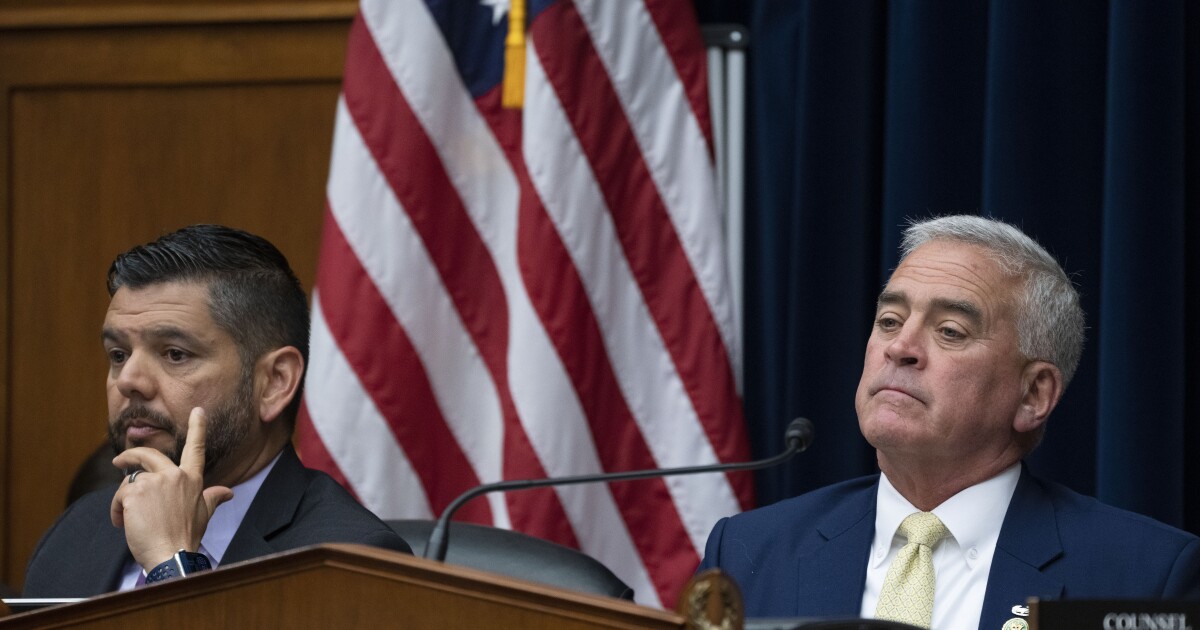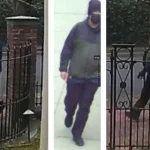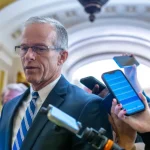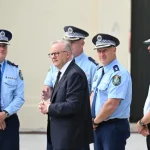

Representatives in the House on Wednesday appeared to find common ground on the issue of strengthening safety mechanisms for biomedical research, indicating bipartisan support for legislative work amid a contentious environment in the lower chamber.
Republican and Democratic members of the House Select Subcommittee on the Coronavirus Pandemic held a hearing to discuss strategies to increase oversight of dangerous pathogen research that is necessary for pandemic preparedness.
BIDEN SHIFTS FOCUS AWAY FROM DOMESTIC AFFAIRS AS ISRAEL WAR INTENSIFIES
“We’re not just examining whether they’re effective, but whether they are sufficient,” said Chairman of the Subcommittee Brad Wenstrup (R-OH) in his opening remarks. “And whether they can protect us from biological threats—both domestically and abroad. And what actions should be taken if these standards are insufficient, or outdated and need to be modernized.”
Subcommittee members and witnesses discussed the lack of oversight and accountability for pathogen research at the international level. Suggestions to address this included implementing greater lab safety requirements for United States funding of foreign labs or establishing an international epidemiology research school in the U.S. to improve training for foreign research.
“Risks to our national health security do not end at our borders. And with every step we take to bolster lab safety and security at home, we must do so with an eye toward strengthening biosafety and biosecurity on a global scale as well,” said ranking member Raul Ruiz (D-CA).
Ruiz added that the U.S. “must boldly lead the international community” in reducing “the risk of inadvertent and deliberate biological threats.”
An implicit basis for the legislative need for a biosafety hearing is the remaining questions regarding the origins of the COVID-19 pandemic and the speculation that SARS-CoV-2 originated from a lab-related incident at the Wuhan Institute of Virology in China.
Although members on both sides of the aisle agreed in this hearing not to debate the origins of SARS-CoV-2 in a politicized manner, witness Jamie Yassif, Vice President of Global Biological Policy and Programs at the Nuclear Threat Institute, said that the plausibility of the lab-leak theory is cause for concern.
“We cannot say with confidence what the origins of COVID-19 are, but the fact that it is even plausible that so much disruption could have been caused by a possible laboratory accident is a big blinking red light,” said Yassif. “It signals the urgent need to strengthen biosafety and biosecurity – domestically and globally.”
Gerald Parker, former Commander for the United States Army Medical Research Institute for Infectious Disease, added that a necessary step in global biosecurity would be to recognize that the World Health Organization currently only has recommended guidelines for pandemic-potential pathogen research rather than enforceable rules.
Parker—who has experience at the Departments of Homeland Security, Health and Human Services, and Defense regarding bioweapons and biosafety research—stressed the need for a focal point within the federal government to set and enforce national-level standards.
When asked by Chairman of the Oversight Committee James Comer (R-KY) whether there was sufficient communication regarding the security implications of the origins of COVID-19 between the relevant federal departments, Parker said there were several inter-departmental failures.
“I think there’s a lack of coordination overall in a lot of our pandemic preparedness and biodefense efforts at large,” said Parker. “That’s why leadership is so important.”
CLICK HERE TO READ MORE FROM THE WASHINGTON EXAMINER
Comer highlighted the timeliness of the biosafety hearing as a critical step in the subcommittee’s efforts to “predict, prepare, protect, and prevent a future public health disaster.:
“We cannot afford to have another COVID-19 Pandemic,” said Comer. “We need to take advantage of this opportunity.”






